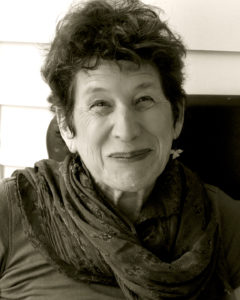 “The Conservation of Matter” arose out of a conversation with a beloved friend whose daughter had recently died. What happens when we die was for him at that moment in time a deep and furious renunciation of possibility. The poem was a response to that—a hope for an opening.
“The Conservation of Matter” arose out of a conversation with a beloved friend whose daughter had recently died. What happens when we die was for him at that moment in time a deep and furious renunciation of possibility. The poem was a response to that—a hope for an opening.
A few months into the Trump presidency, I find myself writing the same poem day after day—struggling to accept and appreciate the wonder of daily life against a background of political turmoil and fear for the values I hold essential to a democratic society—perhaps my own version of Jack Gilbert’s wonderful “A Brief for the Defense.” I have two lines up on my desk “The mind of the hive thinks this is the end of everything,” by Sylvia Plath, and “There is just the right amount of suffering,” by John Cage. I am stuck somewhere between these two.
for J. E.
I follow the hump of the whale exhaling
as it heads for the Bering Sea. I want to see it, and see it again,
closer. Or branches in a storm, their exuberant dance
with the wind. Even rain on a New York street,
cigarette butts in the gutter, taxis splattering. I can’t get enough of it.
You say: When we die we cease to exist. Everything else
is illusion. But what about that law of physics:
the conservation of matter? How water changes to
steam or ice—mass plus energy
equal to the first wet splash.
And this hard-won companionship, smelted
in a blaze of day after day—surely something endures.
Slowly, light turns the bay slate blue.
Night departs. Morning reappears.
The dead look out from their accustomed photos,
stopped in time, but not altogether silent.
The last whiff of the whale’s breath
transforms into ocean, air.
Leave a Reply